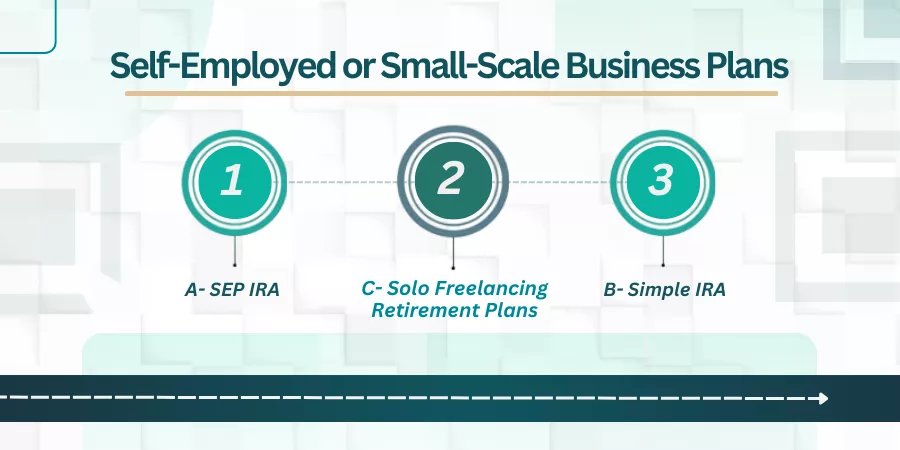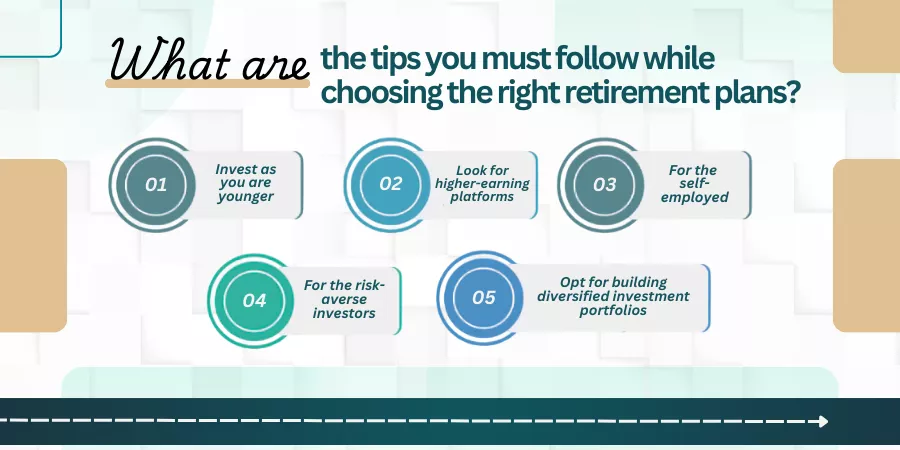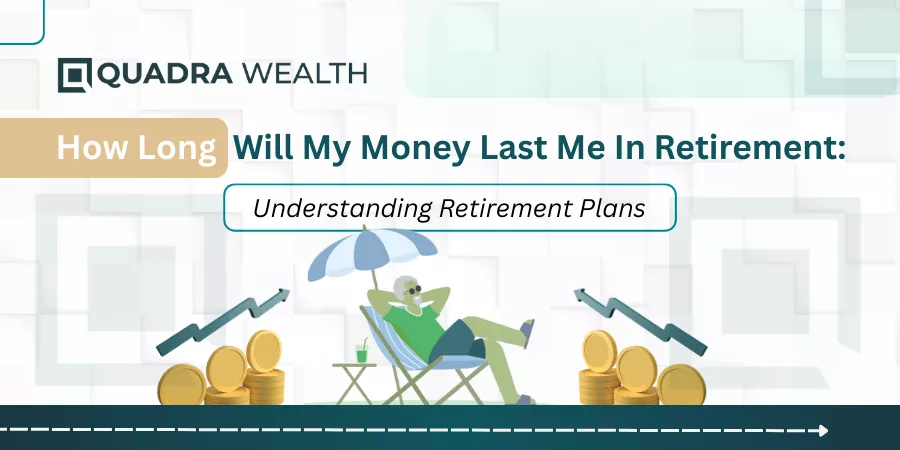Introduction
This is the underlying question that runs through most of our minds. And the question is, ‘How Long Will My Money Last Me In Retirement?’ Yes, after a point in time, your survival instincts start questioning you. You are wonder-struck at how you are going to plan for your future.
Planning for retirement is the most essential thing, yet the most underrated activity people ever wanna do. However, in today’s growing inflation, it becomes extremely hard if you want to cope with future financial goals. It can be a sudden hospitalization of your near or loved ones. Or, it can be to remit school or college fees for the term to allow your sons or daughters to study. Or, it can be to allow some disposable portion of your income base you must save to secure your future.
After all, most of you would only have a single source of income to cope with, and you have multiple number of people whose needs have to be catered to. Presenting you with comprehensive retirement plans that can guarantee you of a safer and more secure future. Helping you get started further:
What Is Retirement Planning- Meaning and Conceptualization Explained
Retirement Planning is a holistic investment solution that helps the working class of the population save for their retirement. Your employers can keep you employed until 65 years of age, and what happens next.
You may not have access to your regular 9-5 job. You may have to apply for Government schemes or public fund agencies to secure a minimum base income to survive or get yourself food and groceries. Your hospital or medical expenses would also be on the rise as you get older.
Therefore, there arises a pertinent need for you to plan your retirement phase. You can approach a retirement planner to help you fine-tune your retirement aided investment plans so that you would have saved enough money to cope with rainy days ahead of you.
You can customize your retirement plans in conjunction with how much money you can deposit on a monthly, quarterly, or yearly basis. And then the corpus amount remains under your Retirement account. You can redeem the funds over the end of 20-30 years so that you get a lump sum with interest earnings.
What are the Different types of Retirement Investment Plans?
These are the different types of Investment plans that are lined up for you as such. Here is a rundown on the same:
401 K- Traditional and Roth- US-Based Employer-Sponsored Retirement Program
This is a perfect retirement plan that comes to you with a host of pre-tax as well as post-tax benefits on the whole. Traditional plans offer you pre-tax benefits, while Roth offers you post-tax benefits. The maximum employer contribution limit that the employer offers can be up to a limit of $23,000 per annum for 50-plus employees. You can add a catch-up amount of $7500 from your monthly paychecks to add to a corpus lump sum amount. This money gets allocated into assets like
- Mutual Funds
- Target date retirement funds
- Index Funds and
- Stocks
You can claim your corpus money plus earnings accrued while the fund account is up for redemption.
403 B and 457 B Plans
These two plans specifically cater to employees who work for public sector undertakings and for non-profit organizations that are spread across the US. The amount value gets invested into annuities and mutual funds.
Individual Retirement Accounts or IRAs
Individual Retirement Accounts, or IRAs, cater to individuals who may want better control over their retirement accounts. Let us have a rundown on how the bifurcation is done:
A- Traditional IRA
The amount gets deducted based on how much your earnings for the current month are. The tax-deductible contributions are worked out accordingly. The lump sum on this fund account is $7000 pa with an additional catch-up limit of up to $1000. You can withdraw from this account if a pertinent need for funds arises. However, general income would be charged on the amount you transfer from your Retirement fund account into your bank’s savings account. Traditional IRA accounts are used by 50-plus employees.
B- Roth IRA
You can avail tax-free withdrawals from the IRA accounts post you turn 59.5, and you have a bandwidth of an additional 5 years to continue tax-free withdrawals from your Roth accounts. This is an ideal retirement plan that younger investors can aim to catch up with. This way, you can be eligible to lower tax brackets on the income they earn.
The Investments for Traditional and Roth accounts are done using the following asset classes:
- Stocks, Bonds, ETFs, and Mutual Funds
- REITs (Real Estate Investment Trusts)
- CDs (Certificates of Deposits) and
- Precious metals
Pension plans with Defined Benefits
These are pension plans that are usually done by employers on a defined scale, indeed. These plans are mostly employer-funded, and you would be eligible to receive a monthly benefit during your retirement. The distribution or allocation of assets is done by the organization that manages pension funds for its employees. This kind of Retirement plan is usually rolled out for public sector undertakings and not private firms.
Self-Employed or Small-Scale Business Plans

These are retirement plans that are ideal for freelancers and small-scale enterprise owners. Let us have a bifurcation into how things are being done:
A- SEP IRA
You can contribute higher amounts to amp up your corpus amount inside your retirement savings. You can divert 25% of your earnings, and the limits can be up to $69,000 pa. These are employer-specific contributions alone, and you can make some kind of adjustments with respect to annual funding in lieu of the same.
B- Simple IRA
This is a retirement plan that can be rolled out for enterprise owners whose staff strength is 100 or fewer employees. Here, the contributions can be made by employers as well as employees. These retirement plans, therefore, suit enterprises or small-scale business units whose administrative costs are on the lower end.
C- Solo Freelancing Retirement Plans
Here is a rolled-out retirement plan for freelancers who are solo enterprise owners, too. The taxation and retirement norms can be worked out by the business owner, and the same person can state their credentials under the employee’s columns as well. Traditional and Roth Retirement policies are available for solo business owners.
Alternative Investment plans that can build you enough money to last until your retirement
Apart from traditional retirement plans, you can also consider alternative sources of investments to boost your retirement portfolios. Helping you through with a rundown of the same:
A- Real Estate
When you own properties, you get a passive source of income. This is the rental income you collect from your co-tenants. While property prices appreciate, you can sell them in the market and apply for capital gain tax slabs. This way, your overall liability on tax reduces while you can enjoy the capital appreciation you receive from your properties. To avoid taxes, you can divert a part of your property-based income towards self-owned retirement accounts.
B- Annuities
You can look for insurance products that can offer you coupons or interest payouts regularly. Otherwise, you look for indexed funds that can help you get access to earning capital gains in the name of dividends. You can look for fixed as well as variable investment products after considering their liquidity and fees.
C- Stock Accounts or Brokerage Accounts
You can look for intraday trading so that you can make regular profits while buying and selling stocks and shares. You can invest in any type of investment class. You can operate on your own and work with a broker to aid trading transactions on your account.
What are Target Date Funds? How do they operate?
Target Funds can be auxiliary accounts that can supplement your mainstream retirement accounts. You can deposit funds into target date accounts and allocate tenor periods. You can continue investing funds until the tenure period of the target funds complete.
This is a retirement plan meant for investors who would prefer a hands-off approach. Here, you can maintain independent target date funds or attach them to your regular investment plans.
This way, you get add-ons to your existing retirement plan, and you can earn interest earnings on the corpus amount as well.
What are the tips you must follow while choosing the right retirement plans?

These are the pertinent tips that you must follow while you choose the right retirement plans. Helping you through a rundown of the same:
Invest as you are younger
When you are relatively younger and working, you would have access to your regular earnings. It is at this stage that you can opt for Corpus retirement plans so that you save something for yourself for rainy days that are way ahead of you. You can choose investment plans that provide you with numerous tax benefits as well.
Look for higher-earning platforms
You can look for traditional 401 (K) IRA plans to avail tax benefits that allow deductions. You can team up with a tax advisor so that you can avoid paying huge taxes on the money you earn from investments.
For the self-employed
For those of you who run self-owned businesses, you can opt for Solo 401 (K) or you can opt for SEP IRA to avail tax deductions for the income you generate from your self-funded startups or small-scale business units.
For the risk-averse investors
If you are a risk-averse investor, then you can invest your money into annuities comprising bonds, fixed deposits, and Govt mortgage deeds. The rate of returns you receive from these investments attracts tax rebates, too.
Opt for building diversified investment portfolios
Do not go for stand-alone investments, as you can lose out heavily to market volatility. Instead, try maintaining diversified investment baskets comprising bonds, equities, and commodities.
The Bottom Line
Retirement plans are, therefore, very pivotal to secure your financial future concisely indeed. You must also read the offer documents carefully before investing. What are your thoughts on this? Do mention it in the comments below!
Frequently Asked Questions or FAQs
How long will my money last in retirement?
Answer: When you make the right investment plans using the financial calculator, you can deduce the retirement income you will receive as you retire. The monthly payment depends on the strategy you use to devise your investment plan, vis-à-vis gauging your investment returns or the RoI factor. Your retirement plan is your nest egg for your longevity and financial security.
How much income do I receive in terms of dollars?
Answer: You must calculate your tax deductions, which can vary from one investment plan to another. This way, you determine the net amount you would receive from every investment plan that you make in lieu of your retirement.






